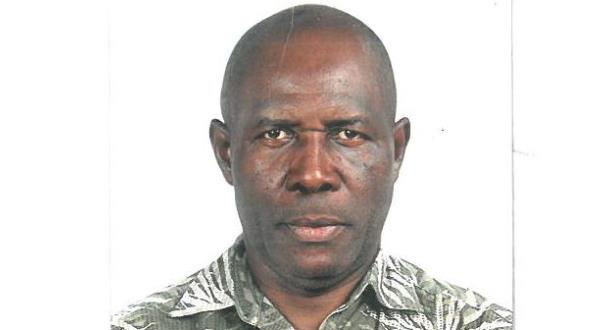Telecom
National Security via Satellite: (3 of 3; Concluding)

By Andrew Aroh
Satellite communications can play an important role in national security.

The role of this technology is better understood today on the front lines in particular where the following prefer to have robust and redundant communication links close at hand:
- Law enforcement personnel
- Incident commanders
- First responders
The committee on national security has many priorities but need to begin to examine the role that Satellite technology plays in our economy and Security.
The question is:
Has the National Security Team and its affiliated agencies already use satellite technology and commercial satcom for a range of national security related mission?
The answers are:
- An approach that is more focused and coordinated across agencies and authorities would allow a better and more cost-effect use of satellite across the national security establishment.
- The government should create a forum where its needs and the private sector’s capabilities can be examined on a regular basis.
- Lately, the National Emergency management Agency (NEMA) has became n enthusiastic use of satellite communications.
- In NEMA’s disaster field office operations, Satellite based voice, data and video-including full motion video-can be uplink to remote offices in effect matching a fixed facility NEMA office.
- NEMA is familiar with the cospa-sarsat for voice services and a data only satellite capability is available with virtual private Network tunneling, but this system is very limited in terms of bandwidth and does not provide digitized voice or video.
- NEMA needs to upgrade its communication facilities:
MERS:
This is a Mobile Emergency response support involving transportable C-/Ku/Ka-band system in additional to NEMA’s vehicle mounted systems.
This system allows us the flexibility of supporting more independent locations simultaneously, and greatly reduces response time to distant locations due to the ease of air transport versus driving.
NEMA needs to provide L-band capabilities to its earth stations for up to date requirements.
NEMA needs to acquire several DBS system that will be used to provide network connectivity to co-located disaster support staff other than NEMA, including state and local government personnel along with the support staff from other agencies such as the Environmental protection Agency.
An independent body once conducted a lengthy assessment of the nationwide Emergency Alert System (EAS) and the possible use of satellite technology emerged as a key component in the list of recommendations. This recommendation has come about because satellite technology:
- Can be used to deliver an EAS message very quickly (within seconds).
- Is very reliable
- Has available high levels of security.
- Does not have the geographical limitations of today’s EAS system.
Satellite delivery of EAS alerts will be the preferred delivery methods within the next few years. What measures are necessary to provide the required facilities?
Satellite facilities currently exist in nearly all radio, television and cable system for the purpose of delivering network feeds. These systems with proper coordination could easily be configured to carry EAS traffic.
Once enough broadcasting facilities are provided, state emergency management agencies and other agencies convert to satellite delivery, the Nigerian communication commission (NCC) will act accordingly.
Professionals lead the way in working with public television stations in development of a hybrid system using satellite and IP data casting technology.
The National Security Team need to evaluate Satellite-based messaging and alert system such as EMNET (Emergency Management Networking) to be deployed all over the 36 states in Nigeria.
- Satellites: Enabling ports and ocean’s offshore links when it comes to protecting seaports and coastal zones, the nation’s maritime administration and safety agency and authorities are routinely in touch via satellite with vessels under way and remote shore-based users using both voice and data links.
- Satellite plays an important role in navigation and the maritime agencies search and rescue operations as well.
- The maritime agency is constantly in search of smaller mobile terminals for ships less than 30 meters in length.
- IP demand-oriented networks is a direction in which the maritime authorities and agencies are trying to head.
- Satellites are a must setting up response centers until more permanent means of communications can be put in place, if any.
- Satellites are a must for remote, disadvantaged users for access to critical information.
- The maritime authorities and agencies need to frequently demonstrate how they can use satellite technology effectively in a variety of emergency response scenarios, sometimes acting as a facilitators in order to assist other agencies.
- Response teams need satellite during emergencies to facilitate other state department and agencies with accessing databases and with the integration of various non-interoperable radio communications.
CREATING ADVANCED TECHNOLOGY RESEARCH CENTER:
With the growing emphasis at the presidency and elsewhere on a rapid response squad to emergencies and terrorism, projects such as:
- Disaster response and emergency medical services (DREAMS) are meant to explore ways to use Satellite links to meet a number of needs.
- This advanced mobile medical communications and remote treatment concept revolves around the availability anywhere of two-way video, audio and data communications in ambulances, military vehicles and remote hospitals.
- The project involves using Ku-band/Ka-band hub terminals, commissioned and fully operational to plan a series of experiments that will operate between facilities at different hubs.
- Those experiments will operate IP over DVB bi-directionally.
- The end goal is to deliver IP over DVB to the ambulance (mobile) node in order to dramatically reduce the cost, footprint and power requirements of the data receiver on the ambulance. A typical configuration supports fully duplex data rate of 2.048Mbps
- Testing need to be conducted on the ambulance terminal with the hub in various configurations such as 2.048Mbps (E1).
- Another role of Satellite equipped specialized vehicle involves rapid telecom infrastructure restoration at remote locations.
- This may involves hub terminal addiction of the office of Emergency Management and Communications. Purchasing a small slice of dedicated Satellite bandwidth to support the vehicle and subsequently buying a larger slice in coordination with other entities is ideal.
Satellite Technology enabling Airport Emergency Communications:
- A new Satellite equipped mobile command post (MCP) supports an operating team of a dozen people which can remain on scene for as long as a week with Satellite based video conferencing and remote database access, among other things.
- The vehicle is intentionally designed with some generic components to allow responders from various departments including national security team to be able to use the vehicles capabilities.
- Dual Satellite phones are onboard the vehicles in case cellular phone services crashes or degrades.
- Via IP date transmissions over Satellite, MCP personnel can maintain contact with the fixed facility Emergency Operations Center (EOC), beaming back everything including:
- Photos
- Closed-circuit television feeds
- A forward looking infrared camera feed in instances where visibility on scene is impaired by smoke, for example.
LAW ENFORCEMENT NEED TO WARM UP TO SATELLITE:
The Nigerian Law Enforcement community needs to be on the frontline when it comes to national security.
- In large rural border state in particular, the use of Satellite technology is becoming increasingly common and widespread.
- A state police for a start may begin by equipping about 150 vehicles with Satellite delivered data communications. Through this means a state police stands to slash its data cost by 50 percent by ending the routine use of messaging from officers in the field.
- And as for new Satellite based solutions impacting operations for national security agents, the use of remote video feeds are required.
- The Satellite industry in Nigeria is watching and evaluating how to implement those for national security as time progresses.
- Definitely, at a time when an organization is not able to replace equipment at one time, any changes will have to be phased in to improve services.
- 1At the state level, the state patrol can begin to use trucks/vans equipped with two-way Satellite terminals to perform commercial vehicle enforcement tasks.
- The national security teams need to look at replacing its current systems with systems that will allow communications while a vehicle is in motion. The cost of purchasing and maintaining the systems is easily offset by the benefits in terms of improved communications, and the sharing of valuable data with out-of-state personnel.
- At the senate, many experts see the role of Satellite technology as a work in progress that for numerous reasons does not necessarily occupy a top slot on the national committee priority list. While I am sure that satellite technology has a role to play in national security, it is probably not a special role that the senate committee on national security should go out of its way to support just for the sake of going high tech. This is because most of what we need are:
- SENSORS
- Good computer databases
- Such hands-on technologies
- Patience
- Taking full advantage of Satellites to date.
- Taking full advantage of numerous capabilities across a very broad spectrum that could be very helpful.
- National security via satellite should not be a surprise to anyone judging by the events of today. This should be seen as the biggest reorganization in our 61years as a nation as well as the most complex problem requiring a very complex integrated set of solutions that the nation has ever had to face.
- As you can see, there is urgent need for the national security team and other state and local agencies to start using satellite technology more frequently along with other telecom and emergency response assets. The Nigerian Communications Commission (NCC) need to act fast to facilitate these involvement.
- When all is said and done, given the need for rapid access to vast information resources that can be updated in real-time. It is the incident commanders on scene who probably benefit the most by having a varidly of communications link close at hand. In many instances, a fixed mobile Satellite link should be viewed as a necessity, where the emerging global mobile personal communications (GMPCS) by satellite terminals are compulsory for national security.
CONCLUSION:
With the recent occurrences in Nigeria, including manmade and natural disasters, the National Security should be seeking Satellite solutions for its various agency needs for:
- Border patrol
- Command operations
- Control activities
- Emergency response operations
This is because Satellite enables those in a crisis situation or ones that are preventing one, to execute directives as soon as possible.
There are three areas where commercial satellite technology can significantly play a role:
- Communications
- Remote sensing
- Data information services such as weather
- Andrew Aroh is President SSPI Nigeria
Telecom
4 Dead, 20 Others Injured as Fire Engulfs Cairo Data Centre

Four people have been killed, with over 20 injured after a fire at Cairo data centre disrupted telecom services nationwide.

A fire at a major Telecom Egypt facility in Cairo on Monday has left four workers dead and at least 22 others injured, plunging parts of the capital into a communications crisis.
According to Hossam Abdel Ghaffar, spokesperson for Egypt’s Health Ministry, most injuries were due to smoke inhalation.
The blaze, which broke out at a key data centre operated by Telecom Egypt, the country’s primary fixed-line and internet provider, was brought under control later that day.
However, it caused widespread disruptions, halting phone services, affecting internet connectivity, and even interfering with digital banking operations.
Internet monitoring group NetBlocks reported that national connectivity dropped to just 62% of normal levels following the incident.
Residents across Cairo struggled with poor network access, and banks—although already closed for the day—reported interruptions in ATM services and online transactions.
In a statement on Tuesday, Telecom Egypt mourned the loss of its employees and pledged support to their families.
Amr Talaat, Egypt’s minister of Communications and Information Technology, assured the public that service restoration was underway and expected to be completed within 24 hours.
To address the disruption, the Health Ministry released alternative emergency contact numbers across Egypt’s governorates, in case its primary ambulance hotline remained unreachable.
The state-run MENA news agency reported that the fire was prevented from engulfing the entire building and nearby rooftops, thanks to the efforts of emergency responders.
A preliminary investigation suggests the fire was likely triggered by an electrical short circuit, according to a security source cited by MENA.
As the nation works to restore full connectivity, the incident has raised fresh concerns about the vulnerability of critical infrastructure and the need for enhanced fire safety protocols in sensitive tech facilities.
Telecom
Globalcom Thrills Subscribers with 3 New Digital Products

Tech faints, Globalcom, on Tuesday unveiled three exciting digital products aimed at rewarding customers. The products, Animation World Promo, Treasure Spin and Sport Brain, also provide subscribers with the opportunity to play and win instant prizes.

Globalcom in a statement in Lagos said that the company is dedicated to providing value-added service to its ever-growing customers.
The first digital product, which is Animation World Promo, is an innovative trivia-based service aimed at challenging customers culinary knowledge of Nigerian food. With it, subscribers engage in answering food related questions, earn points and win delicious prizes.
For Treasure Spin, customers are availed the digital treasure spin experience. With each spin Glo subscribers stand a chance to win instant prizes, making every participation exciting and rewarding.
In addition, Globalcom captures the heart of football lovers with Sport Brain. Subscribers are allowed to predict football scores in matches across top leagues all around the world. Customers get to select their preferred leagues. “It’s a fun and competitive way for football lovers to test their instincts and knowledge,” the company noted.
Customers who subscribe to any of the three services stand a chance to win fantastic daily, weekly, and monthly prizes. Every day, 20 participants will receive ₦1,000 cash, ₦1,000 airtime, and 3.5GB data. On a weekly basis, five lucky winners will walk away with ₦100,000 each, while one grand prize winner will receive ₦1 million every month.
To participate, customers are required to dial *13055*2# for Animation World Promo,*13199*3# for Treasure Spin and *13199*2# for Sport Brain. Each plan can be activated either as a one-time purchase or Auto Renewal.
Globacom further explained that all products are available at an affordable subscription rate of ₦100 for a daily plan, ₦300 for weekly plan and ₦500 for monthly plan.
In concluding, the company disclosed that the services are available to all Glo prepaid and postpaid subscribers nationwide.
Telecom
SiBAN Applauds Interstellar’s Groundbreaking Role in Africa’s Blockchain Future

The Stakeholders in Blockchain Technology Association of Nigeria (SiBAN) has lauded Interstellar, one of its prominent members, for spearheading a major breakthrough in Africa’s financial technology space.

This follows Interstellar’s strategic partnership with the Pan-African Payment and Settlement System (PAPSS) to roll out the PAPSS African Currency Marketplace (PACM), a blockchain-based platform designed to address the continent’s long-standing currency inconvertibility challenge.
The initiative is already being hailed as a game-changer capable of eliminating the $5 billion annual trade friction currently plaguing intra-African commerce.
According to SiBAN President, Mr Obinna Iwuno, the development affirms Nigeria’s leadership in blockchain innovation, stating that Interstellar’s PACM is not only a technological feat but also a timely response to the African Continental Free Trade Area (AfCFTA) mandate of seamless and cost-effective regional trade.
PACM operates on STARGATE, a blockchain-agnostic system developed by Interstellar, and leverages the Bantu blockchain network to facilitate real-time, peer-to-peer exchanges of African currencies.
The solution ensures financial inclusion by allowing businesses, SMEs, and informal traders to transact in local currencies without relying on foreign intermediaries, all while maintaining regulatory compliance.
Mr Ernest Mbenkum, CEO of Interstellar, described the solution as Africa’s roadmap to financial sovereignty. “Blockchain is not just innovation; it is empowerment,” he said.
SiBAN reaffirmed its commitment to supporting policies and partnerships that promote secure, transparent, and inclusive digital economies.
The association further called on stakeholders in government and the private sector to prioritise blockchain adoption as a driver of national development.

 Telecom2 days ago
Telecom2 days agoY’ello Care’s 21-Day Campaign Bridges Digital Divide for Thousands Nationwide

 General News2 days ago
General News2 days agoEnugu Air Commences Operations Today

 E-Business2 days ago
E-Business2 days agoGalaxy Backbone, Rural Electrification Agency Commit to Deepening Digital and Energy Access Across Nigeria

 Broadcasting2 days ago
Broadcasting2 days agoNDPC Slaps Multichoice with ₦766M Fine for Data Privacy Violations

 News2 days ago
News2 days agoLagos-Calabar Highway Gets $100M Push from ECOWAS to Drive Regional Growth

 Telecom2 days ago
Telecom2 days ago20 Years of Digital Leadership: Layer3’s Legacy and the Road Ahead

 News2 days ago
News2 days agoNBS May Release Rebased Figures for Nigerian Economy July 11

 Telecom1 day ago
Telecom1 day agoNCC Wins Global ICT Award for Digital Awareness in Schools



























